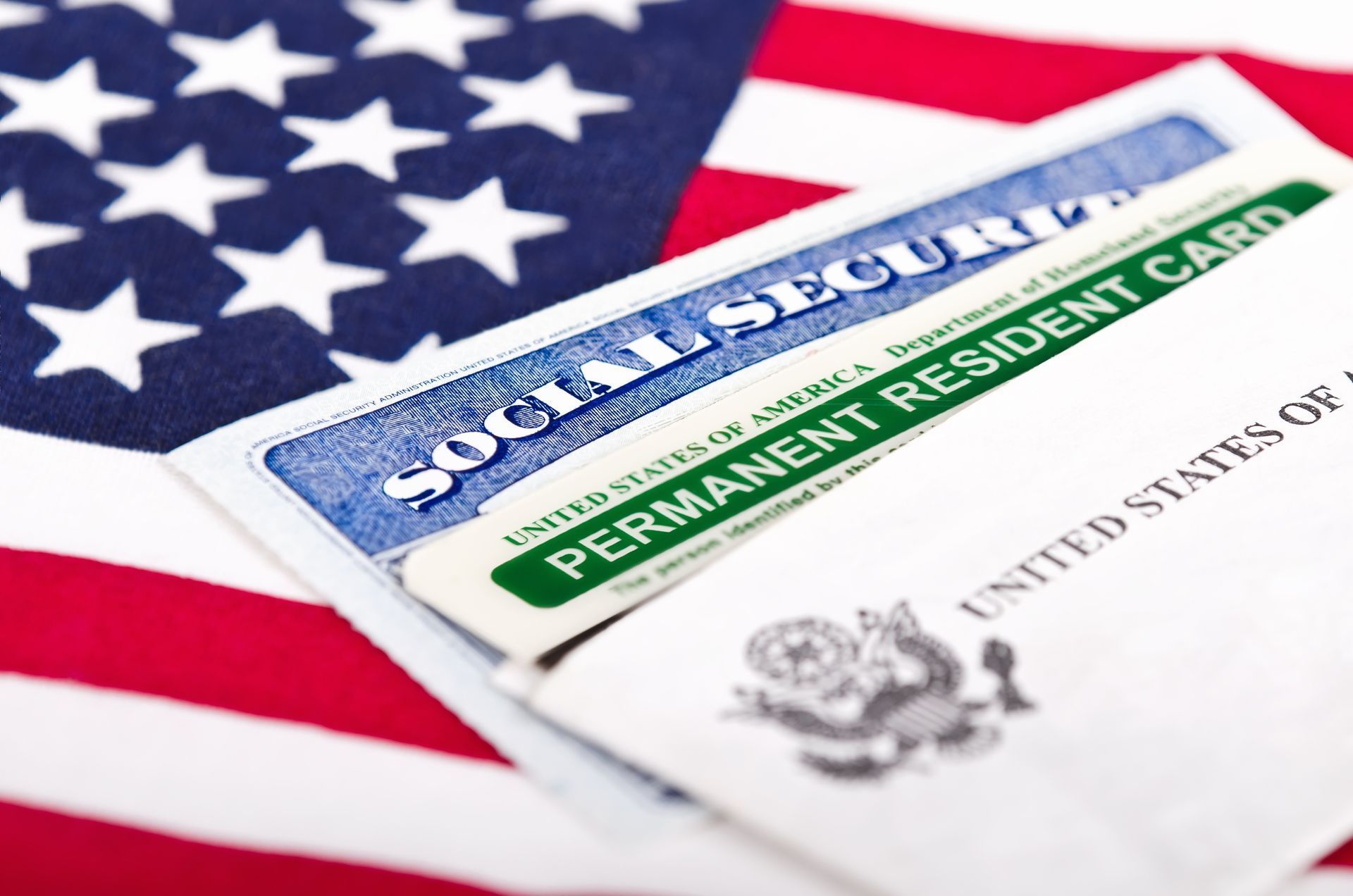2021 New Year's Resolution- Get Immigration Status
Get a Free Case Consultation
Free Immigration Court Guide
Pay Online
Ashley Lively started Lively Law Firm in February 2019 after working for nearly a decade in immigration law. She started her own firm because she wanted a law firm that focused on client experience and had a culture of accepting every case — even the difficult ones.
Lively Law Firm represents clients in all types of immigration proceedings. Many of Ashley’s clients have sacrificed their time, money, and energy to come to the United States in search of a better life and opportunities for themselves and their families. Because of the great sacrifices of our clients we look for every possible avenue to allow them to get immigration status in the United States.
Many people qualify for a visa or a green card but don’t know it. Below are some of the most common ways that people can qualify for immigration status.
Violence Against Women Act (VAWA)
What is VAWA?
Under VAWA, any person — man or woman — who is a victim of domestic violence, child abuse, or elder abuse may submit a green card application without the help of a spouse, parent, or adult child.
Do I Qualify?
You qualify for VAWA if your spouse, former spouse, or adult child –who is a legal permanent resident or a US citizen — abused you in the past or is currently abusing you. This abuse does not have to be physical. The abuse can be mental, emotional, or financial. If your loved one wouldn’t allow you to leave the house without their permission, threatened to call ICE on you, or didn’t allow you to have your own bank account you likely qualify for VAWA.
You can qualify for VAWA if you are not in immigration court or even if you ARE in immigration court.
What Do I Get?
When your VAWA application is approved you are able to receive your green card.
You can qualify for a green card even if you entered the country without a visa, have a criminal record, have an immigration record, or overstayed your visa. The best part is you don’t have to leave the country to get your green card.
T Visa
What is a T Visa?
The T visa was created to provide immigration status to people who were victims of severe forms of human trafficking. Trafficking is defined as sex trafficking or labor trafficking that was induced by fraud, force, or coercion.
Do I Qualify?
Many people do not think they are victims of trafficking. However, trafficking is more common than what many people believe. Trafficking can look like entering on a work visa and then your employer does not pay you the agreed upon amount and threatens to call ICE on you if you report him or leave. Trafficking can look like entering without a visa but bringing in a backpack full of unidentified items because your coyote told you that if you didn’t they would harm you. Trafficking can also look like your coyote making you enter the United States with a child that is not yours and telling you that you must say they are your child or else they will leave you in the desert. Many other scenarios can be trafficking and you should speak to an attorney to determine if you qualify.
What Do I Get?
T visas are valid for four years. However, after three years of physical presence in the United States and continuing to cooperate with law enforcement you can apply for your residency.
You can also apply for parents, spouses, and siblings as a recipient of a T visa.
U Visa
What is a U Visa?
The U visa was created in 2000 to protect certain noncitizen crime victims who assist or are willing to assist in the investigation or prosecution of a criminal office.
Do I Qualify?
If you are someone who was the victim of a crime and you suffered physical or mental harm, you have information concerning the criminal activity, there is a police report, and you have been helpful or are willing to be helpful to the police you may qualify for a U visa.
You do not need to be in lawful immigration status to apply for a U visa. You can apply for a U visa if you have a criminal record. You can apply for a U visa if you have a deportation order.
What Do I Get?
One your U visa is approved you can have U visa status for up to four years. That visa may be extended if the police confirm that you still need to stay in the United States to assist with the investigation.
However, after three years of continuous presence in the US, a U visa holder can apply for their green card. You can also include your spouse and children on your application.
Military Parole in Place
What is Military Parole in Place?
Military Parole in Place was created in 2013 to benefit family members of military personnel. This is a significant benefit that is generally not available to family members of civilians. It promotes family unity for those that serve our country.
Do I Qualify?
To qualify for military parole in place you must be physically present in the United States, you must be the spouse, parent, child (regardless of age) of: an active duty member of the US armed forces, someone in the Selected Reserve of the Ready Reserve, or someone who previously served in the US Armed Forces or the Selected Reserve of the Ready Reserve, and you cannot have a criminal conviction or other serious adverse factor.
What Do I Get?
If approved you are granted immigration status — which allows you employment authorization and protection from deportation.
Importantly, it also allows you to apply for adjustment of status (green card) if someone in your family can submit a petitioner for you.
What if you don’t qualify for any of these reliefs?
You still may qualify for other relief and should contact Attorney Ashley to discuss your options. You may qualify under the automatic extension of TPS, you may qualify for an exception to the one year rule in applying for asylum, or you may qualify for a special immigrant juvenile visa. Call (980) 222-0078 -all consultations are free and confidential.
What Can You Do to Protect Yourself Right Now?
Lively Law Firm recommends that you create a “Protection Packet.” A protection packet is a packet that protects you from being deported without seeing a judge. If ICE arrests you and the immigration officer determines that there is not sufficient evidence to demonstrate you have been in the United States for long enough they can deport you without even allowing you to see a judge.
Lively Law Firm can create a packet that has proof of your presence in the United States ensuring that you have your case heard in front of a judge so you can stay in the United States while you fight your case.
If you or someone you love qualifies for one the options listed above call (980) 222-0078 for a free consultation.













